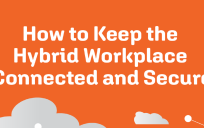A couple weeks ago, I attended the first Minnesota CityCamp, hosted by e-democracy.org and the Public and Non-Profit Leadership Center at the Humphrey School (University of Minnesota).
With more than 150 attendees, this unconference’s theme – “Community 2.0” – was clearly one that spoke to people. Though the unconference was held in Minneapolis, some participants traveled four hours or so to attend. The attendees were also from various industries: government, non-profit, education, software development, consulting, etc.:
 I had never been to a CityCamp before, so if you haven’t been to one either, the structure is interesting. Instead of a typical conference structure – with a keynote speaker and presentation sessions – CityCamp breaks that mold by crowdsourcing session ideas via the web which are then turned into break-out discussion sessions.
I had never been to a CityCamp before, so if you haven’t been to one either, the structure is interesting. Instead of a typical conference structure – with a keynote speaker and presentation sessions – CityCamp breaks that mold by crowdsourcing session ideas via the web which are then turned into break-out discussion sessions.
 There were about 20 different breakout sessions throughout the day (4 to 5 concurrent sessions in 40-minute sections.) Session topics ranged from Code for America to hackers & libraries (I’m not really sure what that one was truly about) to revamping or visualizing the web with new technologies, but the main theme that stood out to me was social media.
There were about 20 different breakout sessions throughout the day (4 to 5 concurrent sessions in 40-minute sections.) Session topics ranged from Code for America to hackers & libraries (I’m not really sure what that one was truly about) to revamping or visualizing the web with new technologies, but the main theme that stood out to me was social media.
Social media was simply inescapable at CityCamp MN. The first session I went to (which I think was the best session by far) discussed using social media for social change. It’s the age-old marketing question: “how can I get someone to do something (i.e. take action, sign a petition, recycle, vote, etc.)?” My answer: make your content memorable and people will connect with you. Make your call to action simple, and people will take action. Another session I dropped in on focused on leveraging social media to help organize and promote community arts more successfully. In fact, one of my colleagues who participated in a policy-making and data session commented that social media dominated that conversation, too.
In one session, an attendee asked a question that stood out to me: “How do I learn how to use social media tools if I don’t have a teenager at home?” In another social media session, we spent 40 minutes discussing tools to help measure social media ROI but at the heart of the discussion was the question, “What social media success even mean or look like?”
These interactions reminded me of a story I saw last week: Business Insider reported that AOL still had 3.5 million dial-up subscribers in the US. Yes, you read that right: dial-up.
 To me, each of these examples reminds me that there are literally millions of people who aren’t yet part of the ever-changing “digital” age and who don’t know how to leverage social media. It doesn’t mean they don’t want to; CityCamp MN showed me that there was a clear thirst for this information. But sometimes we talk about social media success before we talk about the basics of how and where to start (especially if there isn’t a teenager willing to help.)
To me, each of these examples reminds me that there are literally millions of people who aren’t yet part of the ever-changing “digital” age and who don’t know how to leverage social media. It doesn’t mean they don’t want to; CityCamp MN showed me that there was a clear thirst for this information. But sometimes we talk about social media success before we talk about the basics of how and where to start (especially if there isn’t a teenager willing to help.)
The best way I’ve learned to navigate social media channels – and the way teenagers today learn – is simply by doing. This may not be plausible in your government job – you probably shouldn’t create a Facebook page for your agency without knowing how Facebook works – but you can start at home. Create your own Facebook page or Twitter account or YouTube channel if you haven’t already. Start connecting with your friends and family and simply poke around. (My one caveat is you shouldn’t put anything out on the web that you don’t want shared with everyone. There is no recalling a message you send on Facebook. I learned that the hard way!) One of the attendees at CityCamp MN talked about “failing fast” with social media, and I couldn’t agree more. Once you start using social media, you’ll understand what works and what doesn’t fairly quickly – and then you can leverage that knowledge to determine what would work for your agency and what might not.
If diving into the deep end seems a bit scary, there are lots of resources out there: Mashable, GovLoop (for government employees), Social Media Today. These sites are full of ideas, have tons of articles on the top 10 things you should know, and people willing to help you.
Want a little more? Watch this video from CityCamp MN of GovDelivery’s CEO, Scott Burns, talking about social media as part of an integrated, cost-effective digital communications strategy.
For a full list of the agenda, sessions, and other key documents/links, visit CityCampMN’s website.
Original post on Reach the Public.




Leave a Reply
You must be logged in to post a comment.